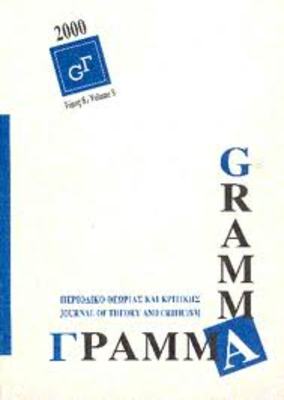Globality is not worldliness
Part of : Γράμμα : περιοδικό θεωρίας και κριτικής ; Vol.13, No.1, 2005, pages 183-198
Issue:
Pages:
183-198
Section Title:
"Centers", "peripheries", and literary politics
Author:
Abstract:
This essay argues that worldliness and globality do not signify the same phenomenon. Whereas "worldliness" is an attempt to understand reality as simultaneously one and multilaterally produced, as objective and perspectival, globality is the fait accompli of processes of globalization that resolutely disavow their ideological intentionality. Focusing on the issue of Global Language and Global English, this essay seeks to implicate the regime of Global English in the genealogy of its dominance, and suggests that unless problems of "language" and "translatability" are raised as profound issues in a world that is structured in dominance, the concept of Global Literature will remain captive to the demands of the so-called dominant world languages. Global experiences are multiform, heterogeneous, heteroglossic, and polyvalent in ways that are just not accessible to the blueprint of global literature as envisioned by the transnational cosmopolitan imagination. Arguing vigorously against the Salman Rushdie claim that the best literature written in India since independence has been in English, this essay articulates the prescription that unless the dominant "non-vernacular" languages learn to translate themselves to themselves, Global Literature will remain mired in the provincialism of dominance.
Subject:
Subject (LC):
Notes:
Περιέχει βιβλιογραφία




